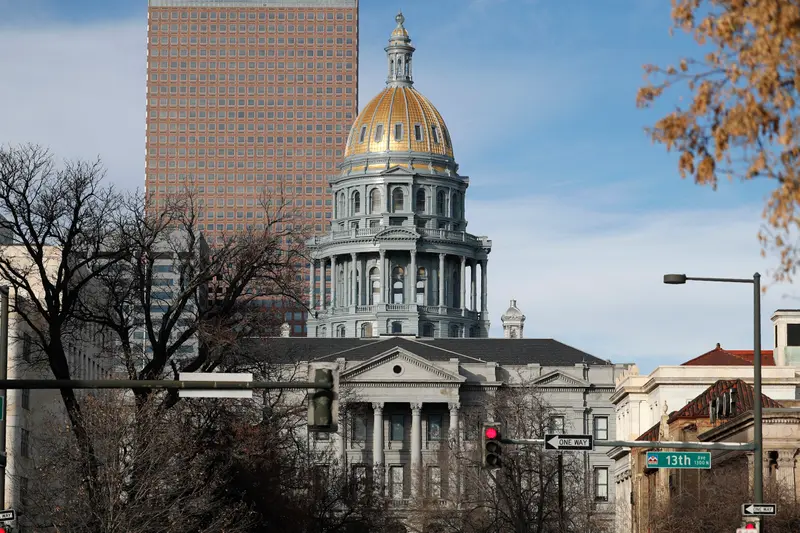Update, June 9, 2022: Colorado Gov. Jared Polis signed House Bill 22-1137 into law on June 3.
This article was produced for ProPublica’s Local Reporting Network in partnership with Rocky Mountain PBS. Sign up for Dispatches to get stories like this one as soon as they are published.
Colorado lawmakers passed a bill Monday aimed at protecting residents in disputes with their homeowners associations.
House Bill 22-1137 limits HOAs from seeking foreclosure against homeowners who accumulate fines for violating community rules known as covenants. The bill also stops HOAs from assessing those penalties on a daily basis and limits them to $500. The legislation now heads to Gov. Jared Polis, whose office said he plans to sign it into law.
“As it currently stands, Coloradans have little recourse and almost no protections when facing down the endless resources held by associations and the lawyers they may hire,” bill cosponsor Sen. James Coleman, D-Denver, told his colleagues at a committee hearing Friday.
The bill went through numerous changes after its first House committee hearing. Supporters said lawmakers removed a provision that would have limited the amount of legal fees that HOAs can charge residents in court cases, but added provisions that specifically prohibited foreclosure on liens that only contain fines or the costs of collecting them.
Coleman said the changes were driven by hours of meetings with representatives of HOAs and their advocates. “We really took our time,” he said, “so that we ultimately make it so that our communities continue to be safe and beautiful, but at the same time folks aren’t losing their homes because they had weeds in their grass.”
Coleman represents Green Valley Ranch, a community that has become the subject of months of publicity after one of the HOAs there filed dozens of foreclosure cases against residents in the past year. Rep. Naquetta Ricks, D-Aurora, was the bill’s initial sponsor.
An analysis of court case data by Rocky Mountain PBS and ProPublica found that Colorado HOAs have filed at least 2,400 foreclosure cases against residents since 2018. HOAs in the state have the legal right to seek foreclosure against homeowners who are at the equivalent of six months behind on their routine dues, but that total can also include fees, fines and collection costs, such as legal fees.
Many homeowners who faced foreclosure have told Rocky Mountain PBS and ProPublica that they ultimately ended up paying thousands of dollars more than their original debts to save their homes because the HOA billed them legal fees after they fell behind. Residents of one HOA community in Aurora, the Timbers Homeowners Association I, told the news organizations that they were surprised to learn their HOA has filed 41 foreclosure cases since 2018.
The newly passed legislation contains several measures that supporters said would give homeowners due process before delinquencies end up in court. It requires several notifications to residents about delinquencies and fines, requires those notices to be provided in the native language designated by homeowners and allows them the opportunity to seek longer payment plans of 18 months to repay debts to the HOA.
Representatives from the HOA industry told lawmakers they opposed the legislation. They said it would make it harder to enforce their rules, especially when homeowners are defiant, and would push more costs onto others who are compliant.
“This bill is going to harm the people who keep their promises and cause expenses for those people. It’s been through so many different amendments and variations, and it’s still so messy,” testified Lindsay Smith, an HOA attorney who heads Colorado’s legislative action committee for the Community Associations Institute.
The bill’s supporters said a provision that opens up small claims court as a venue for disputes could also make a big difference for homeowners who cannot afford to hire an attorney to fight their HOA.
“The disputes that are creating all of the heat within HOAs finally have a place to go,” said Andrew Mowery, an HOA homeowner advocate whose group helped craft the original legislation.


















